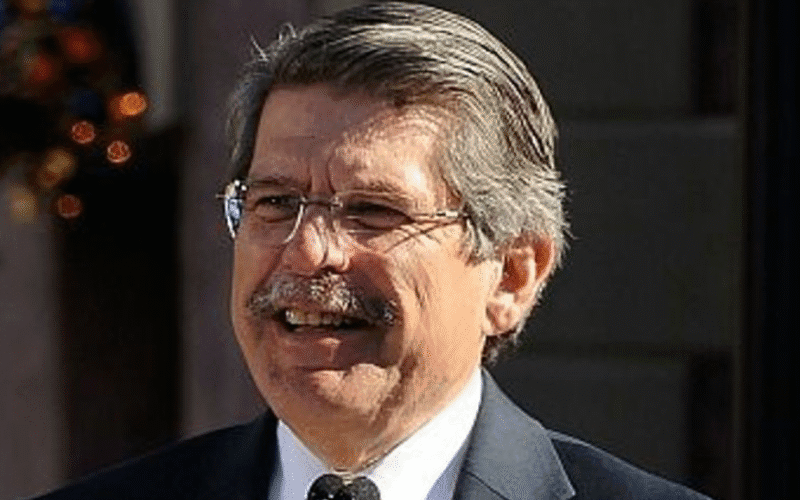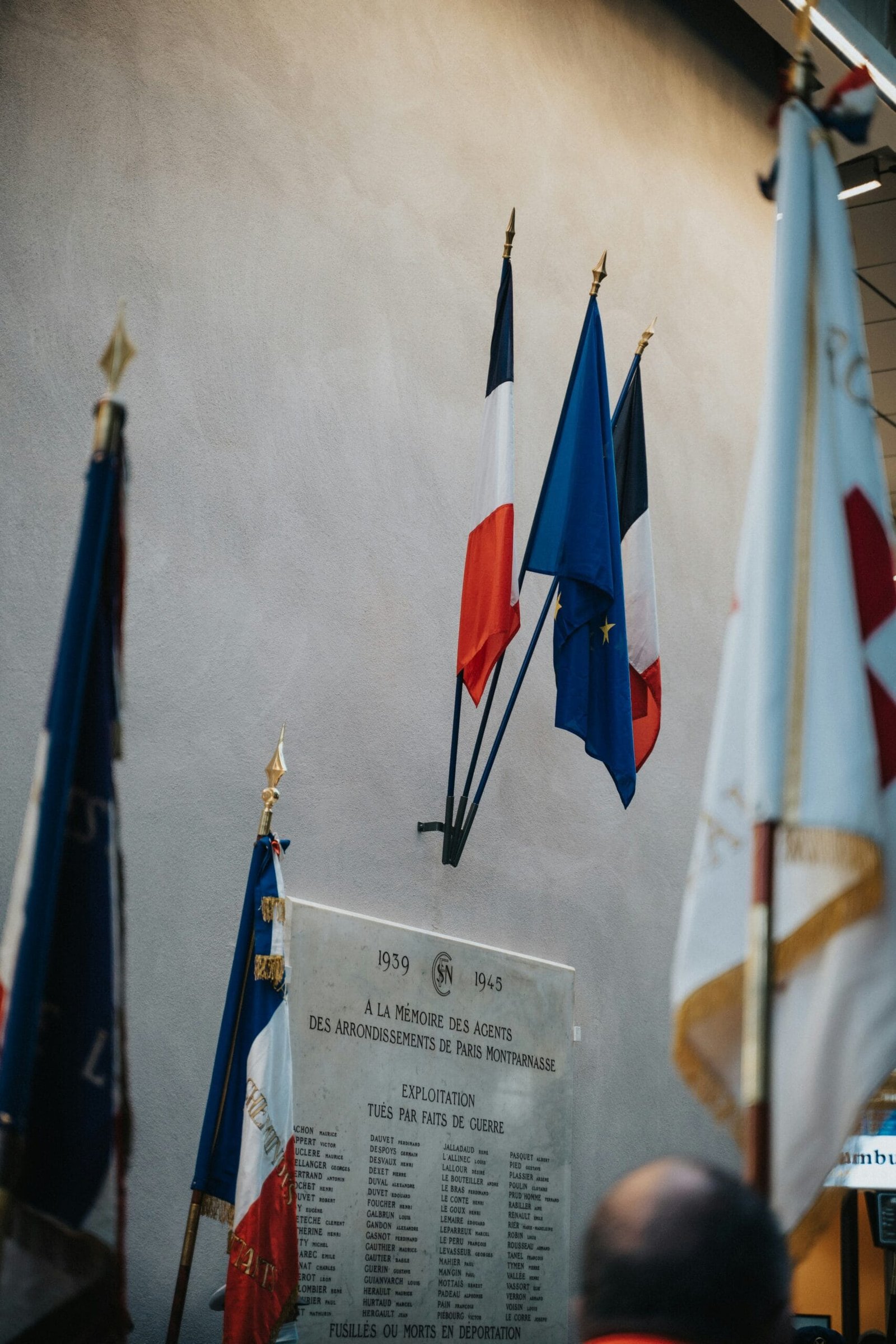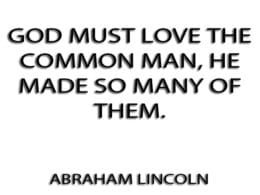Zev Yaroslavsky
Zev Yaroslavsky, a notable figure in Los Angeles politics, has a compelling story that begins in the vibrant neighborhood of Boyle Heights. Located just east of downtown Los Angeles, Boyle Heights has a rich cultural heritage, known for its strong immigrant communities and significant role in the social fabric of the city. Born to Jewish immigrants, Zev was deeply influenced by his family’s values and the communal spirit prevalent in his upbringing.
Growing up in Boyle Heights during the 1940s and 1950s, Yaroslavsky was surrounded by diverse cultures and languages, which shaped his worldview and inspired his commitment to public service. His parents, instilling in him the importance of education and civic responsibility, became critical figures in his early life. The neighborhood’s challenges, including socio-economic issues and civil rights struggles, sparked an awareness in him about the complexities of governance and community needs.
Key events in his formative years contributed to his political consciousness. Participation in local community activities and witnessing the struggles faced by his neighbors served to cultivate a sense of duty within him. The rich legacy of activism in Boyle Heights, coupled with the vibrant community spirit, provided a strong foundation for Yaroslavsky’s future pursuits. These experiences not only molded his character but also ignited a passion for advocating on behalf of marginalized groups.
In navigating through his environment, Yaroslavsky developed an acute understanding of the nuances of local politics. His experiences laid the groundwork for his future endeavors, propelling him towards a career characterized by a steadfast commitment to improving the lives of all Angelenos. This early backdrop is integral to comprehending the motivations that drove him into the political arena, ultimately framing his journey from Boyle Heights to the esteemed halls of power in Los Angeles.
The Political Landscape of Los Angeles
Los Angeles has long been characterized as a vibrant tapestry of cultures, demographics, and political movements. During Yaroslavsky’s entry into the political scene in the late 20th century, the city was experiencing significant socio-economic transformations. A burgeoning population and rapid urbanization created both opportunities and challenges within the political landscape.
At this juncture, the city was grappling with pressing issues such as homelessness, economic inequality, and racial tensions, which were influenced by a diverse populace. Prominent political figures, ranging from progressive activists to established political elites, shaped the discourse surrounding these challenges. The influence of civil rights movements and the fight for social equity were palpable, with grassroots organizations mobilizing to advocate for marginalized communities. This dynamic environment not only reflected deep-rooted social issues but also served as a breeding ground for progressive policies.
The socio-economic challenges were compounded by the complexities of governance in a sprawling metropolis like Los Angeles. City officials grappled with balancing the needs of different communities, which often entailed navigating the interests of wealthy neighborhoods alongside underserved areas. The emergence of issues such as housing affordability, public transportation, and environmental sustainability rallied citizens and activists alike, leading to a shifting political climate. Additionally, the rise of Latino and immigrant communities significantly influenced the political narrative, ushering in a new era of representation and engagement in city governance.
Ultimately, as Yaroslavsky embarked on his political journey, he was confronted with a multifaceted landscape shaped by socio-economic disparities and a rich array of cultural identities. Understanding this complex backdrop is essential to appreciate the opportunities and hurdles he encountered, ultimately impacting his approach to governance in Los Angeles.
Career Beginnings in Politics
Zev Yaroslavsky’s initial entry into the world of politics was marked by a profound commitment to grassroots organization and community engagement. In the bustling neighborhoods of Los Angeles, particularly Boyle Heights, Yaroslavsky recognized the importance of connecting with constituents on a personal level. His journey began in the 1970s when he became actively involved in local organizations advocating for social justice and community improvement. These grassroots efforts provided him with a unique platform to understand the complexities of the issues faced by the residents.
A pivotal moment in Yaroslavsky’s political career was his campaign for the Los Angeles City Council. As a newcomer, he faced the daunting challenge of establishing his credibility in a competitive political landscape. To overcome this challenge, Yaroslavsky implemented a series of strategies aimed at building rapport with the local electorate. He conducted door-to-door outreach, engaging directly with voters to gauge their concerns and aspirations. This personal touch allowed him to develop meaningful relationships within the community, elevating his profile as a candidate who genuinely cared about the issues facing his constituents.
In addition to personal outreach, Yaroslavsky utilized local media to broadcast his message and highlight the pressing issues of his campaign. By leveraging community organizations and public forums, he fostered discussions around topics that resonated with the electorate, such as housing, education, and public safety. His ability to articulate the concerns of the community while providing a clear vision for their future significantly contributed to his campaign’s momentum. Yaroslavsky’s early experiences in politics not only laid the groundwork for his future successes but also demonstrated the power of grassroots activism in effecting change.
Key Political Achievements
Yaroslavsky’s tenure in public office was marked by a series of significant political achievements that fundamentally shaped Los Angeles. As an ardent advocate for affordable housing, he championed the implementation of the “Housing for All” initiative, designed to increase the availability of low-income housing units throughout the city. This progressive plan not only aimed to reduce homelessness but also served as a crucial response to the growing housing crisis, reflecting his deep commitment to community welfare.
In addition to housing, Yaroslavsky was instrumental in enhancing public transportation in the Los Angeles area. He played a pivotal role in expanding the Metro system, advocating for increased funding and better resources to ensure public transit was accessible to all residents. This initiative not only improved commute times but also aimed to reduce vehicular emissions, showing his dedication to environmental sustainability. Under his leadership, significant projects, such as the Eastside Gold Line extension, were realized, connecting underserved communities with critical transit options.
Moreover, Yaroslavsky’s influence extended to public safety as he championed community policing initiatives that focused on building trust between law enforcement and the communities they serve. His policies emphasized the importance of collaboration and transparency, fostering an environment where community members felt empowered to voice their concerns. Yaroslavsky’s achievements in this area have had a lasting impact on how policing is perceived and enacted in Los Angeles.
Through these initiatives and more, Yaroslavsky’s political career stands as a testament to his unwavering commitment to the betterment of Los Angeles. He not only addressed immediate concerns, but also laid the groundwork for sustainable strategies crucial to the city’s future growth and prosperity. His work exemplifies the role of a dedicated public servant striving to meet the needs of a diverse urban population.
Challenges and Controversies
Zev Yaroslavsky’s political career, spanning several decades, was marked by a multitude of challenges and controversies that tested both his resolve and dedication to public service. One of the most significant hurdles he faced was the consistent political opposition from various factions within the Los Angeles political landscape. Throughout his time in office, he encountered not only rival politicians but also organized interest groups that sought to undermine his policies and initiatives. Such opposition often manifested in public debates, where his decisions were subjected to intense scrutiny and criticism.
Critics of Yaroslavsky frequently took aim at his policies regarding urban development and transportation. As he championed progressive initiatives aimed at revitalizing neighborhoods and promoting social equity, detractors argued that his approaches were ineffective or, at times, counterproductive. These criticisms were especially pronounced in discussions surrounding major infrastructure projects, which faced allegations of being mismanaged or failing to meet community needs. Despite this, Yaroslavsky maintained that careful planning and community engagement were crucial to his vision for a more accessible Los Angeles.
Moreover, scandals and public disputes periodically threatened Yaroslavsky’s reputation, revealing the vulnerabilities that accompany a life dedicated to public service. Instances of controversy arose over budget allocations and dealing with contentious community issues, such as housing and homelessness. These incidents not only attracted media attention but also sparked debates over ethical governance and accountability. Nevertheless, Yaroslavsky’s ability to navigate these turbulent waters showcased his resilience and commitment to addressing the complex challenges facing the city. By learning from these experiences, he further solidified his role as a dedicated public servant, fervently striving to improve the lives of Los Angeles residents.
Legacy and Impact
Zev Yaroslavsky’s tenure in Los Angeles politics marked a transformative era that significantly altered the city’s political landscape. His indelible legacy is anchored in a series of policies and initiatives that not only addressed urgent community needs but also laid the foundation for future governance. From his early days in Boyle Heights to his influential role in the Los Angeles County Board of Supervisors, Yaroslavsky’s impact is evident in various facets of civic life.
One of the most notable aspects of Yaroslavsky’s legacy is his commitment to social equity and urban development. His advocacy for affordable housing initiatives contributed to a more inclusive Los Angeles, prompting future leaders to prioritize equitable policies that address systemic inequalities. By championing community-oriented projects, Yaroslavsky demonstrated the power of local governance in shaping a more just society. His efforts have inspired younger politicians to embrace similar values, resulting in a ripple effect throughout the city’s political arena.
Moreover, Yaroslavsky’s influence extends to environmental policy. His initiatives to enhance green spaces and promote sustainable urban planning resonate well into the present day, reflecting a growing recognition of the interplay between urban development and environmental stewardship. This foresight not only served immediate community interests but also acknowledged the long-term implications of policy decisions on future generations.
Yaroslavsky also prioritized education and public health, recognizing these areas as critical components of community welfare. His initiatives in these fields continue to inspire ongoing discussions regarding resource allocation and systemic reform in Los Angeles. The long-term effects of his policies are a testament to the importance of visionary leadership in public service.
In essence, the legacy of Zev Yaroslavsky in Los Angeles politics remains profound. His dedication to social change and community empowerment has influenced countless leaders, ensuring that the values he championed will continue to resonate in the city’s governance, shaping its future in meaningful ways.
Personal Reflections and Lessons Learned
Throughout my journey in politics, I have encountered myriad challenges and triumphs that have shaped my understanding of leadership and public service. Each experience has offered valuable lessons that go beyond the conventional wisdom typically found in textbooks or political treatises. Instead, these lessons are rooted in the day-to-day realities of serving the people, navigating relationships, and understanding the nuances of governance.
One of the most significant insights I have gained is the importance of empathy in political leadership. Engaging with constituents on a personal level has illuminated the diverse experiences of the community I represent. Listening to their concerns and aspirations not only informs policy decisions but also builds trust and rapport that are essential for effective governance. This understanding challenges the often impersonal nature of politics and underscores the need for leaders who genuinely care about the people they serve.
Another cornerstone of my political philosophy is the recognition of the power of collaboration. I have learned that progress often hinges not on individual aspirations but on collective action. Building coalitions and fostering partnerships among various stakeholders can lead to innovative solutions to complex issues. Through these experiences, I have come to appreciate that differing viewpoints do not necessarily equate to opposing agendas; rather, they can offer opportunities for growth and understanding when approached with an open mind.
Moreover, resilience has emerged as a key theme throughout my tenure. The political arena is fraught with setbacks and obstacles. Incorporating perseverance into one’s leadership approach allows for the transformation of challenges into learning opportunities. These moments of difficulty have been instrumental in honing my resolve and reaffirming my commitment to serve the public effectively. Ultimately, these reflections contribute to a more profound understanding of what it means to be a leader in service of the community. Through these lessons, I hope to inspire future generations to engage purposefully in the political landscape and embrace the complexities inherent within it.
Comparative Analysis with Other Los Angeles Politicians
Analysing the political landscape of Los Angeles requires an examination of various influential politicians and their unique contributions to the city’s governance. Yaroslavsky’s career stands out when compared to other prominent figures, each presenting differing backgrounds, policy initiatives, and impacts on local governance. Notably, his roots in Boyle Heights offered him a nuanced understanding of urban issues, notably socio-economic disparities and community engagement. This local connection is a significant differentiator when juxtaposed with politicians such as Antonio Villaraigosa, who, despite having a similar focus on community issues, approached governance through a more diverse, coalition-building strategy.
Villaraigosa’s tenure as mayor was characterized by efforts to unify various demographic groups, drawing from his heritage and advocacy for education reform. While focusing on infrastructure development, he emphasized the importance of neighborhoods, albeit often criticized for top-down approaches. Yaroslavsky, conversely, prioritized local voices in his decision-making in the Los Angeles County Board of Supervisors, demonstrating a commitment to grassroots activism that can be closely contrasted with Villaraigosa’s broader regional strategies.
Another figure worth noting is Eric Garcetti, whose focus on sustainability and the environment marked a new phase in Los Angeles’ political narrative. His policies aimed at environmental justice and urban renewal reflect a global perspective on issues traditionally confined to local context. While Garcetti’s approach reveals an adaptation to a changing urban landscape, Yaroslavsky’s legacy reveals an emphasis on historical context and local identity—indicative of a more traditional political paradigm.
In evaluating these politicians, common themes emerge, particularly the balancing of representation against the complexities of governance. Each has encountered adversity, revealing differing approaches to political integrity and community responsibility. Through this comparative analysis, Yaroslavsky’s distinct contributions to Los Angeles politics can be appreciated in a broader framework, offering valuable insights into the continued evolution of urban politics in the city.
Conclusion: The Future of Los Angeles Politics
In reviewing the themes presented in Zev Yaroslavsky’s memoir, “Zev’s Los Angeles,” it is evident that the evolution of Los Angeles politics is a continuous narrative, marked by the intersection of social justice, community engagement, and the challenges of urban governance. Throughout his career, Yaroslavsky has illustrated the importance of local leadership and citizen participation as pivotal forces that shape the city’s future. His experiences from Boyle Heights to high offices underscore the vital role that empathy and active involvement play in addressing the multifaceted challenges that confront Los Angeles.
As we reflect on the ongoing issues such as housing affordability, climate change, and equity in public services, it becomes clear that the emerging generation of leaders must not only acknowledge the historical context but also actively engage in innovative solutions. Yaroslavsky’s narrative provides a blueprint, highlighting the necessity of collaboration and communication across diverse communities. Leaders are encouraged to draw lessons from past successes and failures, ensuring that the political discourse remains grounded in the diverse fabric of Los Angeles.
The memoir serves as a poignant reminder that Los Angeles is not just a backdrop for political action but a living entity shaped by its residents’ voices. As future leaders rise to prominence, it is imperative that they harness the spirit of activism exemplified by Yaroslavsky, advocating for policies that reflect the needs and aspirations of all Angelenos. Engaging with local political landscapes will not only empower communities but will also pave the way for sustainable growth and inclusivity in the city’s governance.
Ultimately, it is the responsibility of both leaders and citizens to actively participate in this evolving dialogue, ensuring that the values of equity, justice, and community remain at the forefront of Los Angeles politics. By taking inspiration from past experiences, the new generation is poised to navigate the complexities of political responsibilities while fostering a brighter future for the city.




